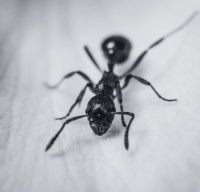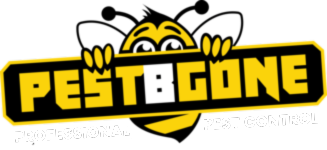Pestbgone Limited
The Mews, Hounds Road,
Chipping Sodbury, Bristol GL8 8UL
Buckinghamshire -
Office: 01628 473062
Onsite: 07728 314363
South Gloucestershire -
Office: 07585 124939
Onsite: 07585 124939
Our Services
Registered in England and Wales.
Company No: 13370531
VAT No: 364671477
Registered Address: The Mews, Hounds Road, Chipping Sodbury, Bristol, South Gloucestershire GL8 8UL
All Rights Reserved © 2025 Pestbgone Ltd






Our Services
Pharaoh Ants
The Pharaoh's Ant is a tiny, (2mm) tropical species of ant which was first recorded in the UK in the early years of the 19th century. It is much smaller and lighter in colour than the usual Garden or Black Ant. It was probably introduced from the general North Africa or Mediterranean area – despite the name there is no positive record that it was introduced specifically from Egypt.
Because it is a tropical species, it prefers warm conditions, and does not live outdoors in Britain. Its favourite habitat is large buildings where there is both warmth and heating ducts which allow it to move around freely – buildings such as hospitals, prisons and centrally heated urban housing units etc. However, it can also be found in individual houses, particularly where buildings are continuous (terrace and multi-
The nest is almost impossible to find – it will be deep inside the heating ducts or cavities of the building. Within this nest there are several queen ants, and worker ants will leave the nest to forage for food and bring it back. If you have an infestation of ants, it is quite possible that they have come from more than one nest. In the nest, the queens lay eggs which hatch in about 1 – 2 weeks. The tiny grubs are looked after by the worker ants which forage for food. After about 2 – 4 weeks of care, the grubs turn into a pupa and after a further 2 – 4 weeks, an adult ant emerges, so in total, from egg to adult ant will take 5 – 10 weeks. Once the adult ant emerges, it has a lifespan of 10 – 12 weeks. A large, well established nest can contain up to 50,000 worker ants and up to 100,000 of the development stages (egg, grub, pupa).
Pharaoh's Ants Have a Social Structure and Lifestyle, Which Make Them Very Difficult to Eradicate
It is important to realise that spraying an area with insecticide will not eliminate an infestation. Spraying will only kill a few of the foraging worker ants – it will not kill the queen ants in the hidden nest. Even worse, if dying ants return to the nest, it can and often will induce a stress condition which causes the nest to break up and disperse, so the infestation simply spreads rather than being eliminated. There are, fortunately, a number of modern treatment methods which are effective. These rely on using baits which the worker ants pick up and take back to the nest. The insecticide in the bait does not kill the adult ants – what it does is disrupt the life style of the nest and stops the production of viable eggs, so the nest gradually dies out. This can take 12 – 14 weeks as the worker ants die at the end of their normal lifespan, however are not replaced by new ants.
If you have an infestation of Pharaoh's Ant there is little you can do to control it other than call for professional help – the very effective bait materials are only sold to trained pest control professionals. If possible, reduce the supply of food by storing loose food, sugar, etc in insect proof containers (jars, or plastic containers with good lids – not cardboard boxes as the ants can get into these). However, as the ants can make use of even the smallest crumbs or tiny amount of spilled drinks etc, this will only help a little. There is no point in trying to block holes or cracks – the ants are so small they will always find access.
Treatment
1/ Our service is to attend and carry out a thorough inspection of your home for Pharoah Ants and to treat affected rooms if it is safe to do so. Please note that this may not result in eradication of the insects
2/ This will consist of multiple visit over a 3-
WikiPest
Everything you need to know about
Pharaoh Ants

We’re here to help -
Buckinghamshire & South East
South Gloucestershire & South West
